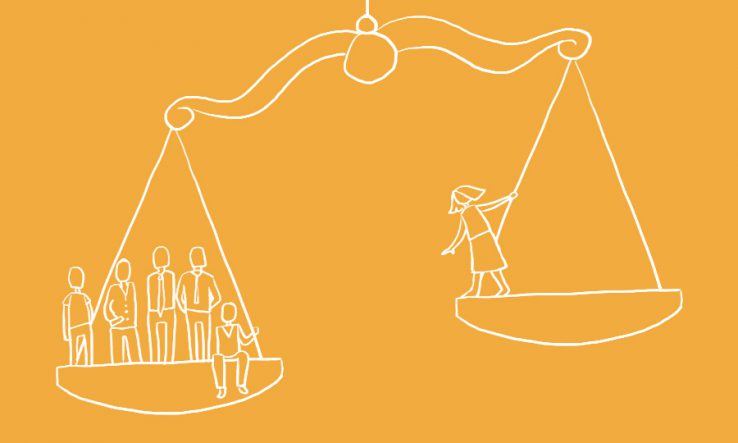
“Biggest threat to gender equality is myth that we have achieved it,” says university rector
There has been a slight increase in the share of female graduates in science, technology, engineering and mathematics subjects in the EU, but gender inequalities in Stem persist.
In 2021, women accounted for 32.8 per cent of all EU university, college and trade school graduates in Stem, up from 32.5 per cent in 2020, the statistics agency Eurostat revealed on 8 March, which was International Women’s Day.
Romania, Poland and Greece had the highest shares of female graduates in Stem, all over 40 per cent, while Belgium, Spain and Germany had the lowest shares, all below 30 per cent.
The underrepresentation of women in Stem is a longstanding issue that the EU has been attempting to address, including through its European Research Area policy package.
These attempts and the persistence of inequalities were highlighted in various publications released to mark International Women’s Day.
Lower representation in the workforce
The European Commission flagged the continuing disparity between male and female Stem graduates in a report on gender equality in the EU, also published on 8 March.
“Gender stereotypes place constraints on life choices, education and employment options. In turn, these constraints perpetuate stereotypes and, more broadly, unequal gender power relations in the public and private spheres,” it said.
“Even if there are more women than men university graduates in the EU, the proportion of women students in Stem disciplines, which have better pay and career prospects, is persistently lower than the proportion of men.”
A “telling example” of this is that men represented 80 per cent of total graduates in ICT.
“The biggest threat to gender equality is the myth that we have already achieved it,” said Katharina Holzinger, rector of the University of Konstanz in Germany, in a statement from the Young European Research Universities Network.
Numbers not enough
The European Institute of Innovation and Technology also acknowledged that the fight is “not over” for women’s equality.
The EU agency said that the gender gap in innovation and entrepreneurship is one of the “key barriers” to improving Europe’s innovation potential and must be overcome to help tackle challenges around climate change, health, energy and food.
It said that bringing the share of women in innovation up to the level of men is “not enough” as institutions must also be “fixed” to be free of gender bias and discrimination.
The European Patent Office signed a statement with over 75 other intellectual property offices worldwide, acknowledging women’s “stark underrepresentation in the intellectual property ecosystem”.
The offices said they will aim to improve the inclusion of women in this ecosystem so that women can better develop and commercialise innovations.